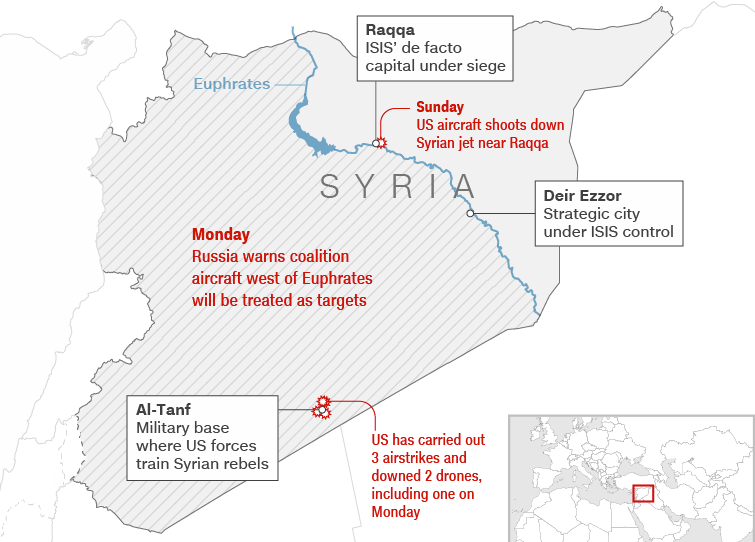The White House said that there are "potential preparations for another chemical weapons attack" by the Syrian regime and warned the country's president, Bashar al-Assad, of a "heavy price" if one is carried out.
"The United States has identified potential preparations for another chemical weapons attack by the Assad regime that would likely result in the mass murder of civilians, including innocent children," according to a White House statement released Monday night.
The statement said, "The activities are similar to preparations the regime made before its April 4, 2017 chemical weapons attack. As we have previously stated, the United States is in Syria to eliminate the Islamic State of Iraq and Syria. If, however, Mr. Assad conducts another mass murder attack using chemical weapons, he and his military will pay a heavy price."
The statement tweeted by White House Press Secretary Sean Spicer did not offer any further details about what the "potential preparations" and "activities" were.
After an April 4 airstrike on a rebel-held town of Khan Sheikhoun in Idlib province, horrifying images and videos emerged showing Syria's civilians -- including children -- struggling to breathe, foam coming from their mouths as they appeared to die of asphyxiation.
Three days later, the US launched a military strike in response to the chemical weapons attack that killed dozens of people. US warships launched 59 Tomahawk cruise missiles at the airbase that was home to the warplanes that carried out the chemical attacks, officials said.
President Donald Trump ordered the strikes and stated then: "It is in this vital national security of the United States to prevent and deter the spread and use of deadly chemical weapons."
The strike was the first direct military action taken by the United States against the regime of al-Assad in the country's six-year civil war.
In April, international chemical weapons inspectors found what they called "incontrovertible" evidence that Sarin gas, or a similar substance, was used in the chemical attack that killed 89 people. Syria blamed terrorist groups for the attack.
Immediately after the White House issued its warning to the Assad regime on Monday, US Ambassador to the United Nations Nikki Haley tweeted: "Any further attacks done to the people of Syria will be blamed on Assad, but also on Russia & Iran who support him killing his own people."
What's happened since US strikes?
Tensions have heightened between key players -- especially between the US and Russia -- over Syria as it has transformed from a civil war to a complex battle involving international players and their proxies.
While some international players are focused on targeting ISIS, many are maneuvering to either prop up or depose Assad and his regime.

-- Russia vociferously opposed Trump's missile strike response in April to the Syrian regime chemical attack, calling it an "aggression against a sovereign state."
-- The US shot down a Syrian plane last week, which led Moscow to announce it would suspend a de-confliction hotline with the US, which is designed to prevent any accidents in the skies over Syria.
-- Russia also warned that aircraft operating where the shootdown occurred would be considered "air targets" for its forces in Syria.
-- The US shot down two Iranian-made drones this month, marking an escalation in the area around At Tanf -- a base where coalition forces are advising an anti-ISIS Syrian rebel group.